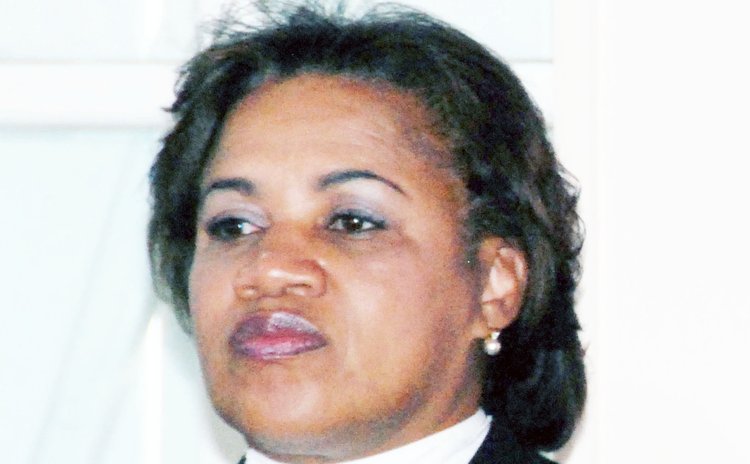Dame Janice Pereira: Questions about independence of the judiciary

Chief Justice of the Eastern Caribbean Supreme Court (ECSC) Dame Janice Pereira has expressed serious concerns about the independence of the judiciary in the region. On Wednesday last week, Dame Janice spoke on the theme: "Fulfilling our Strategic Vision in Challenging Times" via simulcast in Anguilla during the official opening of the new law year 2014/2015.
"Every State within the Eastern Caribbean must take stock of the rising violent crimes within our region and must be prepared to tackle the problem in a holistic way. Simply placing tougher laws on the statute books does not solve it. Adequate resources must be deployed not only for swift detection of crimes but also swift prosecutions with adequate facilities and manpower for the fair and efficient disposition of criminal trials throughout all stages of the criminal process," she said.
Dame Janice continued: "These matters must be addressed if the public is to gain and maintain confidence in our criminal justice system. It is often lamented throughout the region, through various public fora, that violent crimes are overtaking our comparatively small societies. It is also well recognized that crime is the antithesis to economic development. High incidences of crime stifle economic growth. The casual link between high crime rates and slow or stagnant economic growth cannot be denied and cannot be ignored."
She also spoke on the inadequate resource with which the court has had to function on a daily basis.
"It has adversely impacted our output. Inadequate judicial physical space has been a major challenge faced throughout the jurisdiction. Our court is frequently called upon to adjudicate on matters relating to safety in the workplace or breach of statutory duty to provide a safe and secure working environment, while it finds itself operating from an environment which may be considered less than safe or otherwise hazardous to health," she stated.
Justice Pereira said that although the courtrooms and court offices are central to every facet of the judicial process, many of these facilities are in a dire state and in many of the islands there are challenges wrought by the lack of sufficient courtrooms and other accommodations (including inadequate security measures) for judges, court staff, litigants, lawyers, jurors and disabled persons.
"Added to this, the court has to contend and make do with physically disjointed spaces which detract from ease of operation, resulting in inefficiency and lack of accountability. Courts should never have to be closed because of safety concerns except in the event of natural disasters or other Acts of God. Such occurrences severely undermine the justice system and erode public confidence in the judiciary," Dame Janice said.
The court, she said, must remain steadfast in its stride to imagine, develop and implement new ways which will promote and ensure better and equal access by all to the justice system – the rich, the powerful, the poor, the weak, the marginalized, the fit, the disabled, the old and the young.
"Our free societies are founded and built upon respect and adherence to the rule of law. An independent judiciary, as the upholder and enforcer of the rule of law, is a critical and necessary construct of a free society. The Eastern Caribbean Supreme Court views, undertakes and discharges this responsibility with utmost seriousness," she said.
She continued: "Therefore not only must the court safeguard its independence, but the executive and the legislative branches of government must ensure that their action or indeed inaction does not erode or encroach upon the independence of the judiciary. Where a judiciary is reliant on funding and the provision of other critical resources such as security, from the Executive, their failure to put in place adequate security measures to safeguard judicial officers as well as other court users, is, in every sense, an erosion and thus poses a real threat to the independence of the judiciary – individually and institutionally. To safeguard the individual and institutional independence of the judiciary a holistic approach must be taken as a number of key elements must be present and functioning adequately."
She told lawyers that they are the link between the litigants and the courts and are therefore "obliged to ensure that they provide the best quality service to their clients and to the courts."
"This in turn aids in ensuring the proper functioning of the justice system and by extension in upholding the rule of law. Also of great importance is judicial ethics. Judicial ethics and judicial independence go hand in hand as judicial ethics is essential to the preservation of the rule of law, democracy and good governance, which in turn, are essential elements in the exercise of judicial independence," she said.




